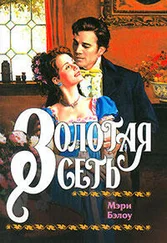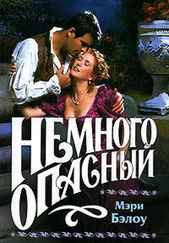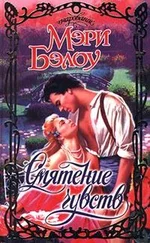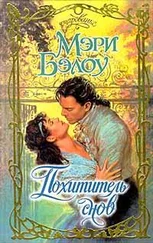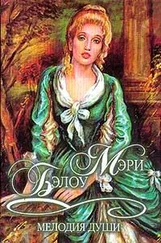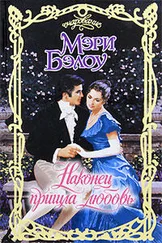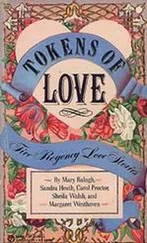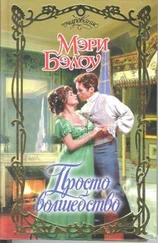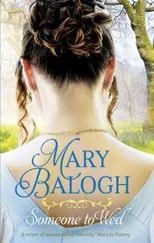Jessica had hated her—she had come, seemingly from nowhere, to wreck Abby’s life as well as Camille’s and Harry’s, and to destroy her own dreams. It had taken her a long time to accept Anna as part of the Westcott family, then as Avery’s wife, her own sister-in-law and cousin. It had taken even longer to love her.
Avery’s eyes were resting upon Anna across the table. It often shocked Jessica to note that despite the almost bored expression her brother wore habitually in company, there was something in his eyes whenever he looked at his wife that spoke of fathomless depths of . . . Of what? Love? Passion? Passion seemed too strong a word to use of the indolent Avery, but appearances could be deceptive, Jessica thought. She was sure there must be a well of passion in him that very few people would suspect.
Oh, she thought with a sudden wave of unexpected yearning, how could she possibly be planning this year merely to settle for an eligible match? She wanted what Avery and Anna had. She wanted what Alexander and Wren had and Elizabeth and Colin. And Abby and Gil.
She wanted love. Even more than that, she wanted passion.
And she thought of that silly little detail that had kept her awake through most of the night, tossing and turning in her bed, punching and reshaping her pillow. She thought of Mr. Thorne’s little finger caressing hers upon the pianoforte keys, very lightly, very deliberately. Very briefly. How idiotic in the extreme that such a thing could have robbed her of a night’s sleep. If she were to tell anyone, she would be laughed off the face of the earth. She had felt that touch sizzle—yes, it was the only appropriate word—through her whole body, warming her cheeks, setting her heart to beating faster, creating a strange ache low in her abdomen and down along her inner thighs to her knees. Her toes had curled up inside her evening slippers.
She had wanted to weep.
She had asked him to romance her and had expected—if she had expected him to take up the challenge at all, though he had said he would—lavish gestures, similar to what she was getting from Mr. Rochford. Instead, in all the days since, she had had a pink rose each morning and a touch of his little finger to hers last evening.
It was laughable.
But she still, even after a few hours of sleep, felt like weeping.
She wanted . . .
Oh, she wanted and wanted and wanted.
What Avery had.
What Alexander had.
What Elizabeth and Camille and Abby had. And Aunt Matilda.
She wanted .
“Mr. Rochford has asked to take you rowing on the Thames this afternoon during the garden party?” her mother asked, speaking softly so as not to wake the baby.
“Yes,” Jessica said. “I promised that I would go out in one of the boats with him.”
“It is going to be a lovely day,” Anna said. “It already is.”
Jessica wished it were raining. She really did not like Mr. Rochford, she had decided last evening. He tried too hard to be charming and deferential. He smiled too much. All of which she might have ignored or at least excused on the grounds that he had not been to London before and was new to the position of prominence with the ton into which his prospects had thrown him even though his father was not yet officially the Earl of Lyndale. What had turned the tide against him last evening was the story he had told about the supposedly dead earl, his cousin. It might be perfectly true. She had no reason to believe it was not. But it included serious charges, involving even debauchery and murder. Ought he to have volunteered that information to a group of strangers in the middle of a party? About his own family? He had shown poor taste at best. At worst, he had been deliberately smearing the name of his father’s predecessor in order to make himself and his father look better by contrast. More legitimate, perhaps. How unnecessary. The law itself was about to make them legitimate.
Would she have been so offended if his dead cousin had not happened to have the same name as Mr. Thorne?
Gabriel?
Yes, of course she would. She did not like to hear people blackening the reputation of someone who was incapable of defending himself—or herself. Especially that of a relative. She could not imagine any of the Westcotts doing such a thing.
“You are right,” she said in answer to Anna’s comment. “It is not even windy. It is going to be a perfect day for a garden party.”
After a few hours spent at the House of Lords, Avery Archer, Duke of Netherby, and Alexander Westcott, Earl of Riverdale, had a late luncheon together at White’s Club.
They were not natural friends. At one time Alexander had viewed Avery as little more than an indolent fop, while Avery had considered Alexander a bit of a straitlaced bore. But that was before Harry was stripped of the earldom and his title and entailed properties passed to Alexander, a mere second cousin. It was before Avery married Lady Anastasia Westcott, the late earl’s newly discovered and very legitimate daughter. The crisis, or rather the series of crises that arose from those events and subsequent ones, had thrown the two men together on a number of occasions, not the least of which was a duel at which Avery fought—and won—and Alexander acted as his second. Their encounters had given them at first a grudging respect for each other and finally a cautious sort of friendship.
They spoke of House business and politics and world affairs in general while they ate. Once Avery discouraged a mutual acquaintance from joining them by raising his quizzing glass halfway to his eye, bidding the man a courteous but rather distant good day, and pointedly not asking for his company.
After their coffee had been served, Avery changed the subject.
“To what do I owe this very kind invitation?” he asked.
Alexander leaned back in his chair and set his linen napkin beside his saucer. “Jessica is giving serious consideration to settling down at last, is she?” he asked.
Avery raised his eyebrows. “If she is,” he said, “she has not confided in me. Nor would I encourage her to do so. That is a matter for my stepmother to worry her head over. Or not. My sister is of age and has been for several years.”
“What do you think of Rochford as a suitor for her hand?” Alexander asked.
“Do I have to think anything?” Avery sounded pained. “But it seems I must. You invited me to have luncheon with you for this exact purpose, I suppose.” Avery sighed, and then continued. “He is perfectly eligible and will be more so very soon unless the missing earl should suddenly drop down from the heavens into our midst at the last possible moment like a bad melodrama. Rochford has obviously set his sights upon Jessica. Equally obviously, the usual family committee has decided to promote the match and throw them together at every turn. Why else would he have been invited to your sister’s supposedly exclusive party last evening? I understand Jessica is to go out with him in a boat small enough to allow for only one rower and one passenger at a garden party this afternoon. One would hope his manners are polished enough that he will volunteer to be the rower.”
“Do you like him?” Alexander was frowning.
“I do not have to,” Avery said as he stirred his coffee. “Jessica would be the one marrying him. But as far as I am concerned, the man has too many teeth, and he displays them far too often. He also has abysmal taste in waistcoats. But he may have myriad other virtues to atone for those vices. And I would not be called upon to look upon either the teeth or his waistcoats with any great frequency if Jess were to marry him. Do I assume you do not like him? On the slight acquaintance of one evening spent in his company?”
Читать дальше

